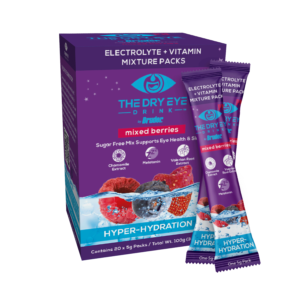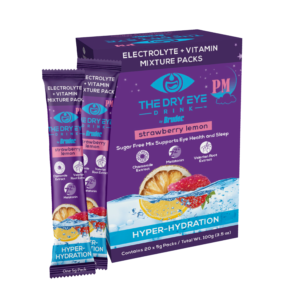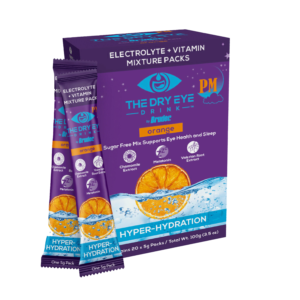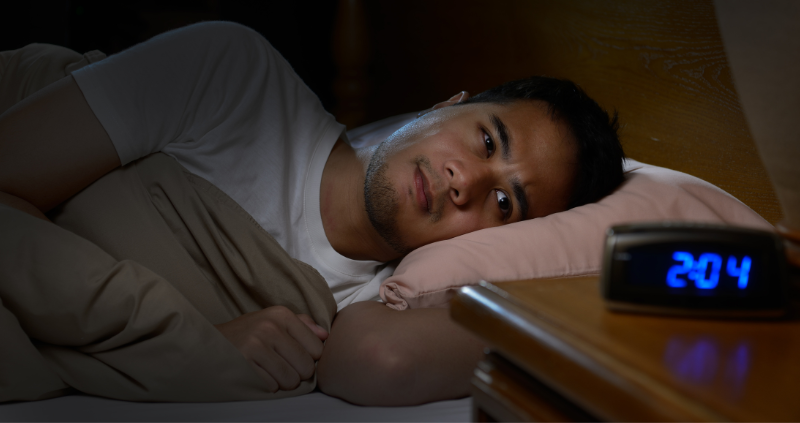
Dry Eye Disease (DED) and its relationship with sleep disorders is a growing area of research, highlighting how eye health and sleep quality are closely interconnected. The Tear Film and Ocular Surface Society (TFOS) conducted a systematic review and meta-analysis of available data. The report, published in The Ocular Surface, provides a deeper look into the link between DED and sleep, drawing from various studies and scientific observations.
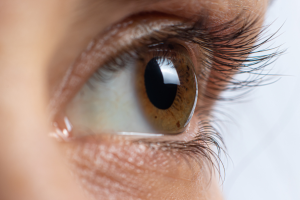
The Ocular Surface 28 (2023): 262-303.
Authors: Anat Galor, Alexis Ceecee Britten-Jones, Yun Feng, Guilio Ferrari, David Goldblum, Preeya K. Gupta, Jesus Merayo-Lloves, Kyung-Sun Na, Shehzad A. Naroo, Kelly K. Nichols, Eduardo M.Rocha, Louis Tong, Michael T.M. Wang, Jennifer P. Craig
Impact of Sleep Quality
Poor Sleep Quality and DED: Research shows that individuals with poor sleep quality, characterized by frequent awakenings, difficulty falling asleep, and shorter sleep duration, are more likely to report symptoms of DED. Sleep deprivation and disturbances are thought to impair the homeostasis of the tear film, leading to more significant ocular surface inflammation and discomfort. The body’s reduced ability to repair tissues during sleep deprivation could contribute to the worsening of dry eye symptoms.
Study Insights: A systematic review that included 19 studies found that DED patients reported poorer sleep quality, spent less time asleep, and had more frequent sleep disturbances than control groups. Additionally, large-scale population-based studies from Singapore, China, and Japan confirmed that poor sleep quality is closely associated with the severity of DED symptoms .
Specific Populations with Sleep Disorders
Shift Workers: Circadian rhythm disruptions, common in shift workers, are associated with increased DED symptoms. Shift workers often experience misalignment between their internal body clock and external light-dark cycles, which leads to poor sleep and increased dry eye issues due to extended wakefulness and decreased blinking.
Older Adults: Age-related changes in sleep patterns, including shorter sleep durations and increased nighttime awakenings, are linked to a higher prevalence of DED. Older adults are already at risk for DED due to age-related changes in tear production, and poor sleep can further aggravate these symptoms .
Sleep Apnea
Obstructive Sleep Apnea (OSA): Sleep apnea, a condition where breathing is interrupted during sleep, has been strongly associated with DED. Patients with OSA often report increased DED symptoms, which may be linked to reduced oxygenation during sleep, leading to ocular surface hypoxia. The use of continuous positive airway pressure (CPAP) therapy for treating OSA has also been implicated in worsening DED due to air leakage that dries the eyes.
Study Insights: The Singaporean population study found that individuals at high risk for sleep apnea (as assessed by the Berlin and STOP-Bang questionnaires) were more likely to report DED symptoms. Sleep apnea disrupts normal sleep architecture and can lead to ocular surface complications .
Sleep Duration
Short and Long Sleep Durations: Both insufficient (less than 5 hours) and excessive sleep (more than 9 hours) have been associated with increased DED symptoms. Short sleep durations are particularly detrimental as they can increase systemic and ocular inflammation. On the other hand, long sleep durations may be linked to lower levels of tear secretion, causing the ocular surface to become more susceptible to dryness.
Study Insights: The Korean study, which focused on older adults, found that individuals with sleep durations exceeding 9 hours had lower odds of reporting DED symptoms, while those sleeping fewer than 5 hours had a higher risk. This study underscores the importance of balanced sleep for ocular health .
Sleep Quality in Large-Scale Surveys
Pittsburgh Sleep Quality Index (PSQI): The PSQI has been a primary tool in assessing sleep quality in DED patients across multiple studies. Consistent findings indicate that poor sleep quality scores are strongly associated with DED symptoms, and this relationship persists even after adjusting for comorbidities like cardiovascular disease or depression.
Global Consistency: Population-based studies from Singapore, the Netherlands, and China confirm that DED patients consistently report worse sleep quality than those without DED. This association spans different age groups, ethnicities, and sexes, emphasizing that sleep disturbances are a global issue in individuals with dry eye .
Potential Treatments and Interventions
Integrated Treatment Approaches: Since sleep disorders and DED share a bidirectional relationship, treating one condition may improve the other. For example, managing sleep apnea with appropriate therapies (e.g., CPAP masks designed to minimize eye dryness) may reduce DED symptoms. Similarly, treatments targeting DED, such as artificial tears or anti-inflammatory medications, may lead to better sleep quality.
Behavioral Interventions: Sleep hygiene practices, such as maintaining consistent sleep schedules, creating a dark and comfortable sleep environment, and avoiding digital screens before bed, can help improve sleep quality in DED patients. Additionally, addressing underlying factors like anxiety or lifestyle habits may offer relief for both sleep and eye health.
